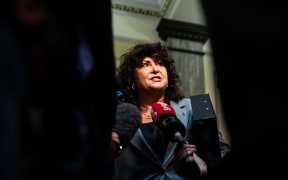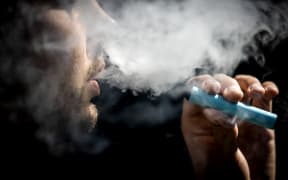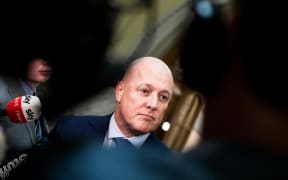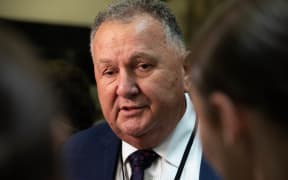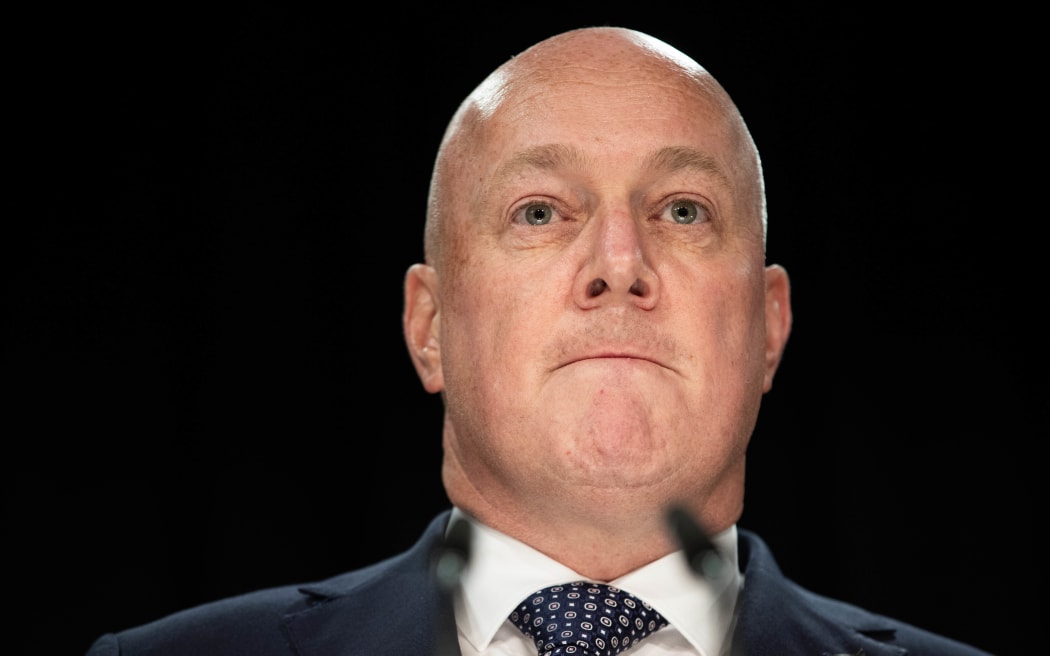
Prime Minister Christopher Luxon has repeatedly claimed smokefree measures under the previous government would drive up retail crime. Photo: RNZ / Angus Dreaver
Ministers repeatedly insisted smokefree legislation passed by the previous government would increase tobacco-related crime, even after senior health officials told them it could have the opposite effect.
The laws, which the government scrapped in February, would have slashed the number of tobacco retailers from 6000 to 600, removed 95 percent of the nicotine from cigarettes and banned sales to anyone born in 2009 or later.
Prime Minister Christopher Luxon and Health Minister Shane Reti repeatedly told reporters that the legislation would drive up ram raids and grow the tobacco black market.
The claims were among talking points circulated by the Prime Minister's Office, revealed in documents released to shadow health minister Ayesha Verrall under the Official Information Act and provided to RNZ.
The to-and-fro between ministers' offices and officials in late November and early December shows senior health officials tempering and correcting the language originally proposed by the Prime Minister's Office.
Health ministry deputy director-general Andrew Old advised Reti's staff that the risk had been considered when the policies were being introduced, but subsequent research found that illicit tobacco trade "has actually been decreasing". The research found the new laws "may lead to an increase or a decrease in the illicit tobacco trade", Old wrote.
Despite this, responses were sent from Reti's office in the following days to several media outlets, including the BBC, Stuff, and NZME, asserting concerns that the changes "would have increased the black market for tobacco, and an escalation of ram raids".
Luxon told Morning Report in early December that the remaining tobacco retailers "will become a massive magnet for crime and we also believe that it will drive more of the market into the black market as well".
The draft talking points included a note that the ram raids claim had come from Police Minister Mark Mitchell's office and that the Prime Minister's Office was following that up.
There was no further mention in the documents of any evidence to support that claim.
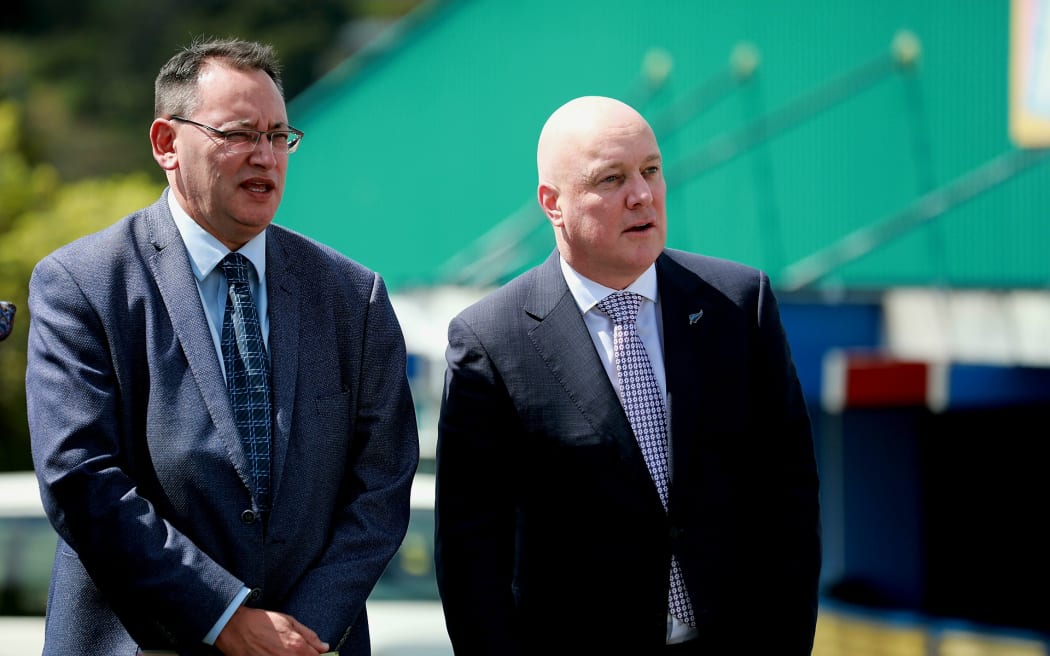
Officials told Health Minister Shane Reti the smokefree law being repealed was expected to reduce the overall risk of crime. But he and Prime Minister Luxon repeatedly told the public the opposite. Photo: RNZ/Nick Monro
Policies were 'expected to reduce risk of crime'
The regulatory impact statement for the policies, which Reti requested from his staff, suggested the opposite.
As a result of the entire suite of laws coming into place, "dairies and other small businesses may be less subjected to robberies", it said.
In advice provided to associate health minister Casey Costello and copied to Reti a few days later, officials said the low nicotine policy "was also expected to significantly reduce the incentive to steal tobacco from approved retailers".
"The combination of these policies was therefore expected to reduce the overall risk of crime through fewer targets, more robust security processes, and a less appealing product."
But ministers continued to double down on the ram raids claim for weeks afterwards.
"We believe very strongly [the laws] would have driven more criminal activity and it would have created a black market," Luxon told Morning Report in February.
"Limiting distribution when we've already seen ram raids … because they wanna take the smokes - actually that would have driven more ram raid activity."
Other talking points were discussed ahead of the Prime Minister's post-Cabinet press conference on 4 December, including the decline in smoking rates.
Luxon emphasised the decline in overall smoking rates to reporters that afternoon, saying the government was "deeply committed" to lowering smoking rates.
Hours beforehand, officials had provided advice to his office that although adult smoking rates were declining under the status quo, they were not dropping at the rate needed to achieve the Smoke Free 2025 goal, and Māori women would not achieve that goal until 2061.
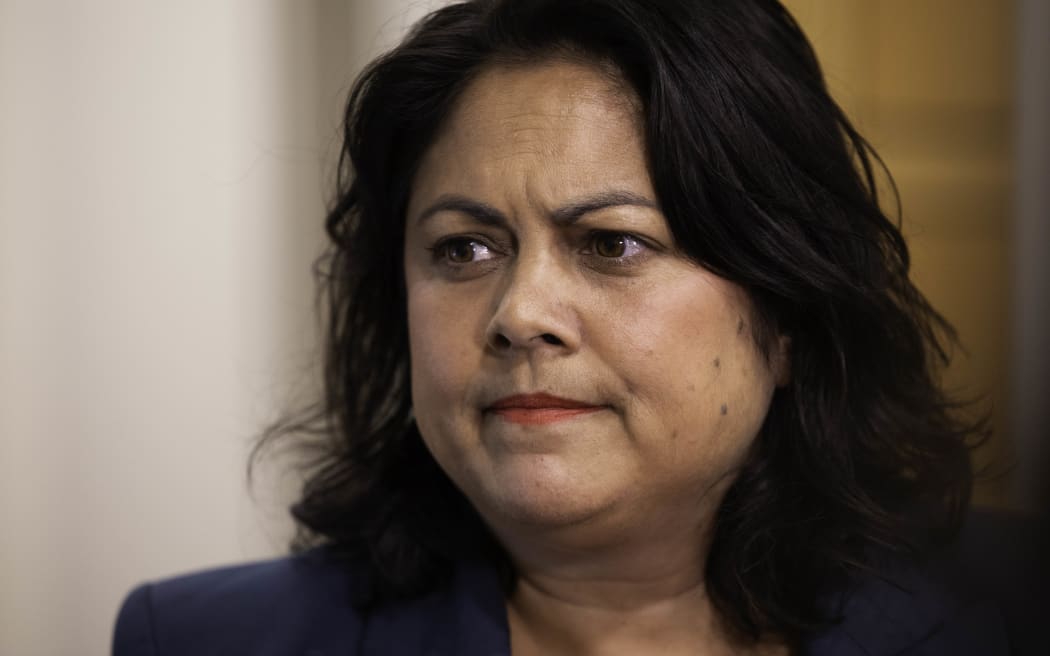
Labour's health spokeswoman Ayesha Verrall says the government came up empty-handed in a search for evidence to support political claims about smokefree legislation. Photo: RNZ / Angus Dreaver
Labour's Verrall said the documents "show the political process of lines, probably originating in the Prime Minister's department, specifying what the government wanted to say and then being sent out to ministers to go see if they could find evidence to support these claims".
"They come up with nothing, yet they continue to feed those lines out anyway."
A spokesperson for Reti pointed RNZ back to the regulatory impact statement, which included Customs advice that the black market was increasing and that independent research was needed into whether the smoke free laws could increase that risk.
When asked why the results of that independent research, which came to the opposite conclusion, were not used by ministers instead, the spokesperson said that it was "pretty normal" for ministers to take advice over a period of time and that they were entitled to use the earlier advice from Customs.
Read more from RNZ's investigation into smokefree law repeal:
Smokefree law repeal
The National-led coalition government repealed the Smokefree Amendment Bill earlier this month as part of its agreement with NZ First.
The change is expected to boost revenue from excise tax by $1.5b, because fewer people will stop smoking. But public health experts and officials have warned there will also be a heavy cost on the health system.
An RNZ investigation revealed Costello's office sought advice on further measures, including freezing tobacco excise tax for three years. Costello denies requesting the advice but says she does not know who did.
Costello was warned by officials repealing the legislation would be viewed as a breach of the Treaty of Waitangi.
RNZ has identified similarities in the language and themes used in notes from Costello's office and those used by the tobacco industry and its supporters.

